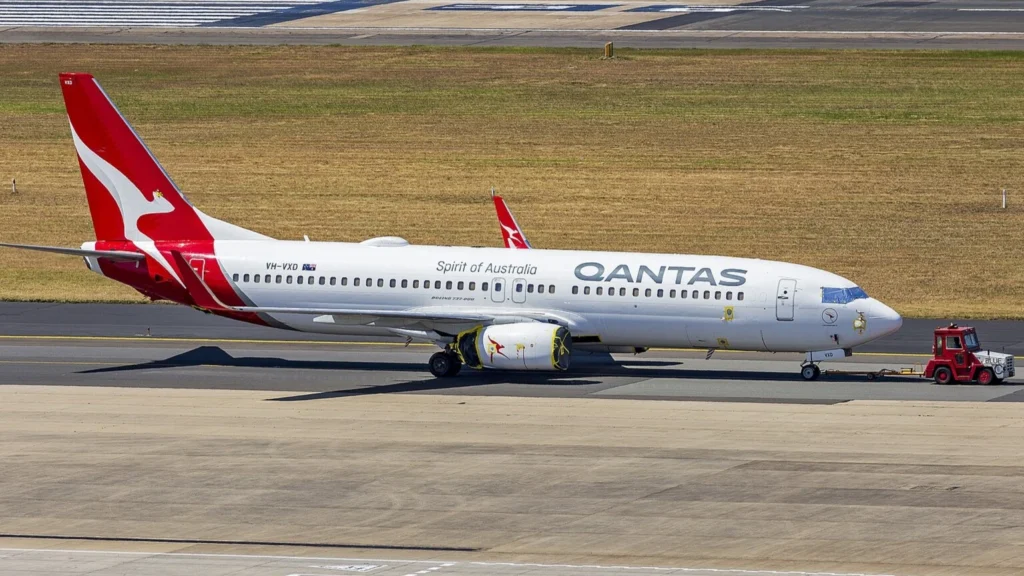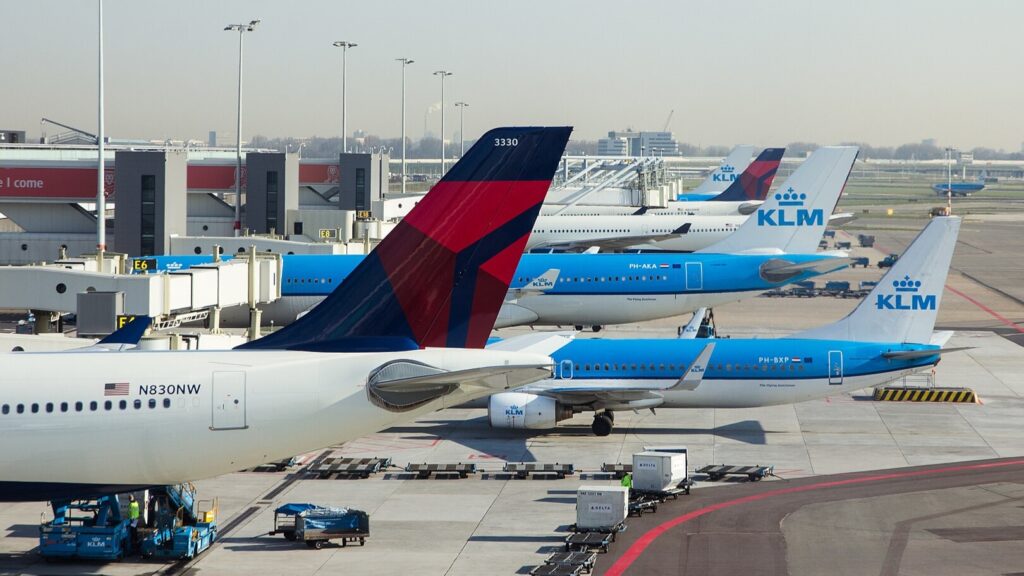CHRISTCHURCH- Qantas Airways (QF) flight from Christchurch (CHC) to Melbourne (MEL) had to make two U-turns owing to different issues today (December 16, 2024).
Qantas flew with its Boeing 737-800, registered as VH-VZR. Furthermore, it is a 13.3-year-old aircraft equipped with CFM 56-7B engines.

Qantas Flight Makes U-Turn Twice
The aircraft QF168, which departed Christchurch at 6:46 a.m. on Monday, suffered two different technical issues that necessitated quick intervention by the flight crew.
FlightRadar24 data shows that in the first incident, Qantas flight QF168 took off from CHC at 5:46 AM UTC. After around 45 minutes in the air, the airplane executed a U-turn owing to radio equipment failures. The plane safely landed at CHC at 7:27 AM UTC.
After a comprehensive evaluation and necessary maintenance by technicians and engineers, the flight lifted off for the second time at 8:37 AM UTC. After 40 minutes in the air, the flight crew observed a strange odor and decided to turn back. The plane landed successfully at CHC at 10:18 AM UTC.
Following two consecutive accidents, the Qantas flight took off for the third time, but instead of landing in Melbourne, they chose Auckland (AKL).
From Auckland, another plane flew people to Melbourne. This resulted in a delay of more than 11 hours for passengers who expected to land at 8:00 AM local time but arrived at 7:06 PM local time.
Qantas representatives apologized for the hardship caused to passengers and promised to re-accommodate them through alternative flight arrangements via Auckland.
The airline reiterated its commitment to customer safety and reducing travel interruptions, working tirelessly to repair technical issues and make passenger journeys easier.

Similar Foul Odor Diversions
On December 13, 2024, KLM Royal Dutch Airlines journey KL685 was diverted to Bermuda on a transatlantic journey owing to an unusual live pig cargo issue. Six hours into the flight from Amsterdam to Mexico City, the aircraft suffered a major malfunction.
Pilots phoned air traffic control, reporting an intense stink from 100 live pigs in the cargo hold, which threatened the cockpit’s oxygen atmosphere. The captain stated that the situation was non-emergent but required rapid attention.
After entering a holding pattern near Bermuda’s coast, the airplane was cleared to land. The pigs were removed in a systematic manner by airport officials and placed in a secure facility under veterinarian supervision. The overwhelming animal odor made the cargo atmosphere utterly unmanageable for the crew.
The unforeseen deviation demanded the accommodation of 259 passengers and crew personnel. Local motels provided temporary lodging as technical experts worked to resolve the cargo issue. The airplane eventually departed Bermuda late Saturday night, arriving in Mexico City early Sunday morning.
Similarly, a Delta Air Lines flight experienced an emergency while departing from Fort Lauderdale-Hollywood International Airport on October 29, 2024. Flight DL2133, an Airbus A321 bound for LaGuardia Airport, encountered a major cockpit issue shortly after takeoff.
The flight crew discovered a bad stench in the cockpit, triggering an instant emergency declaration. Pilots made a crisp U-turn and safely returned to the original airport at 7:24 a.m. local time. The airplane taxied to terminal D, where 121 passengers and six crew members exited safely.
Federal Aviation Administration officials began looking into the unexpected deviation. Delta Air Lines acknowledged the crew’s prompt response to the cabin stench while prioritizing passenger safety. The airline promptly arranged for a replacement aircraft to finish the flight to New York.
Delta’s spokeswoman informed Aviation A2Z that the regular safety protocol was followed during the incident. The airline agreed to re-accommodate passengers on an alternate aircraft, reducing travel interruptions caused by unanticipated technical issues.












Leave a Reply